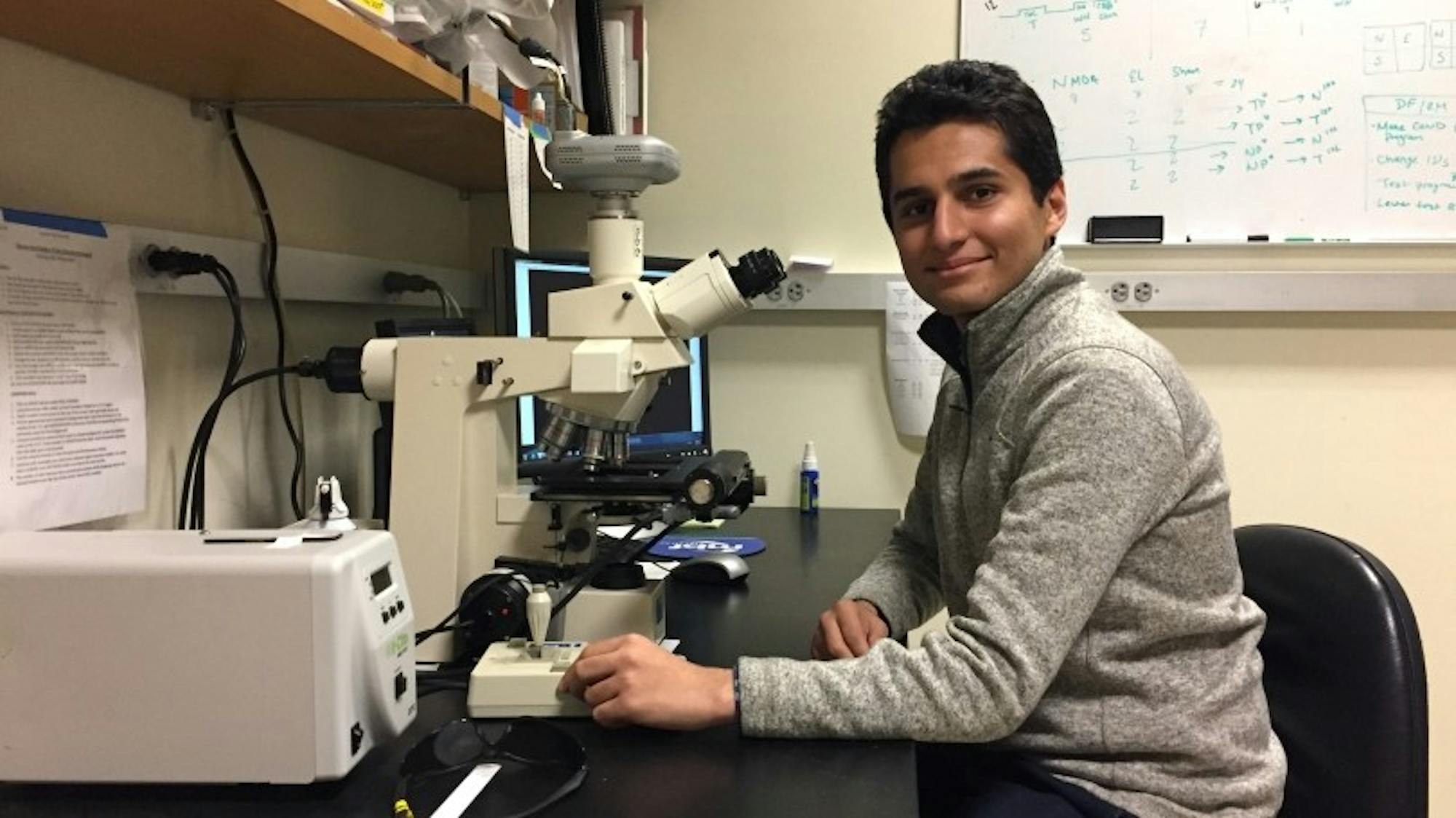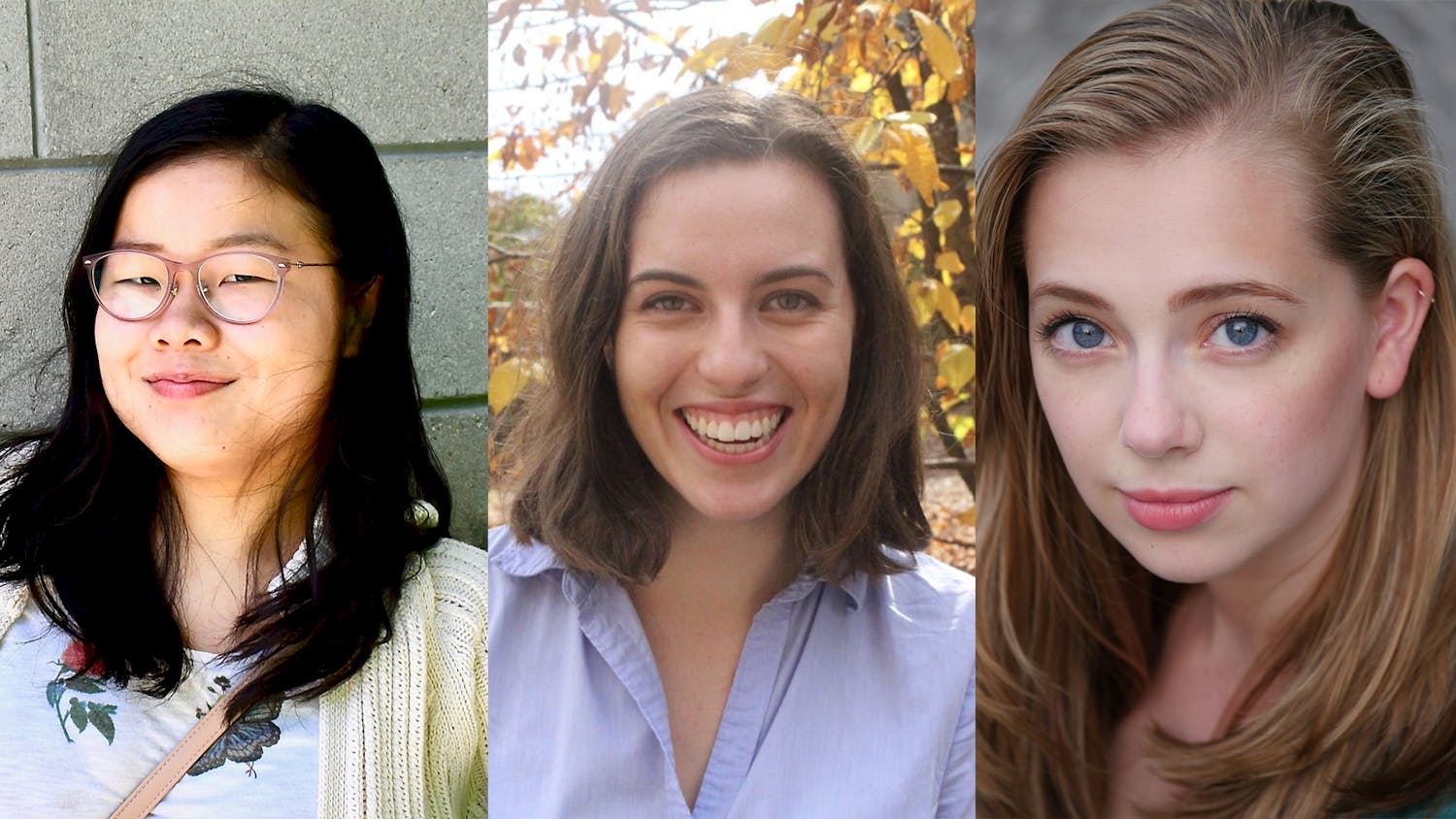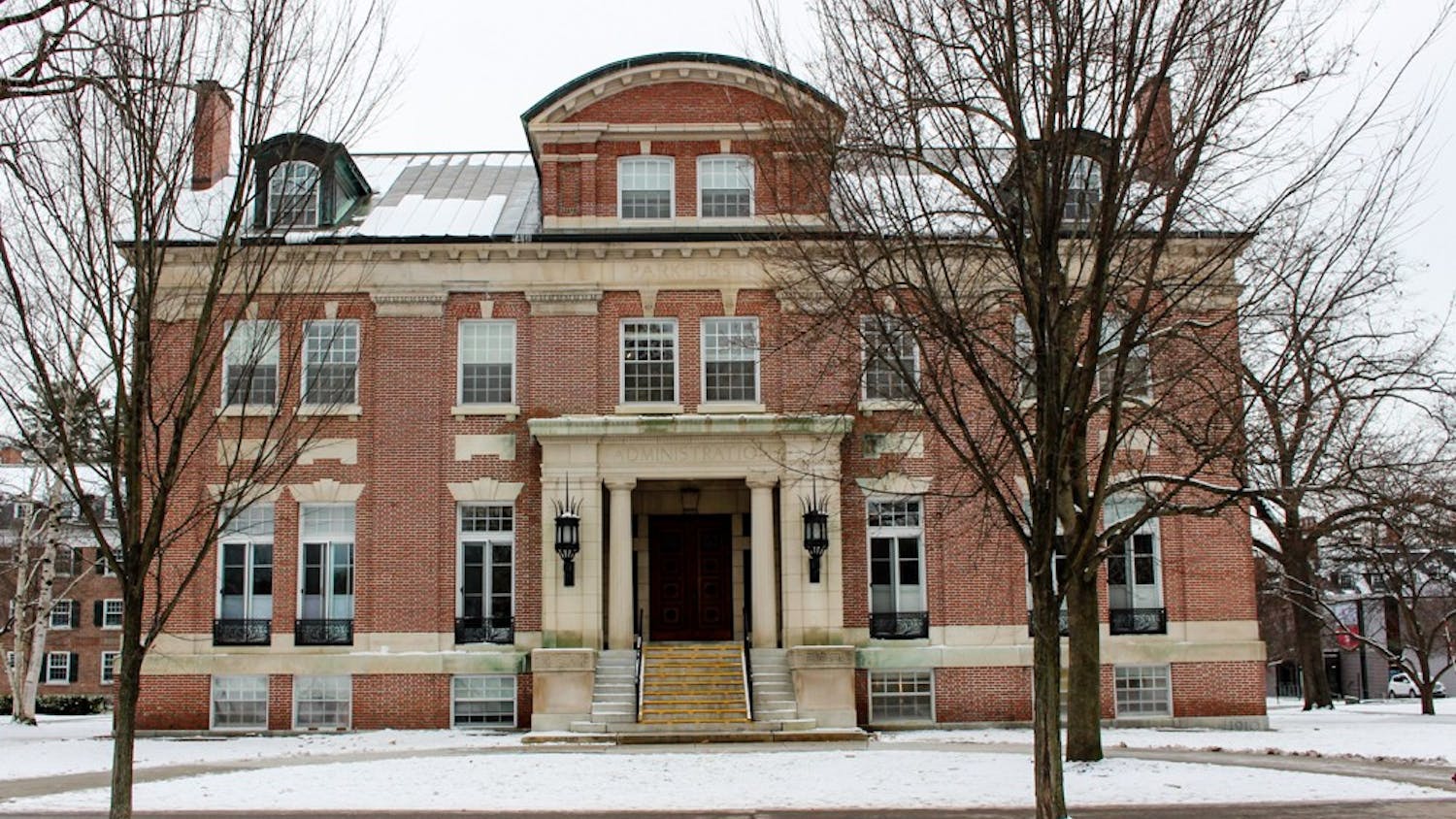This article is featured in the 2020 Commencement special issue.
Senior fellows, whose year-long research projects accompany or take the place of a major, have worked through unforeseen challenges due to COVID-19, including halted lab experiments and reconfigured presentations.
This year’s senior fellows, Janice Chen ’19, Jessica Kobsa ’20, Armin Tavakkoli ’20 and Seamus Walsh ’20, worked on projects ranging from the neural basis of fear renewal to the effects of attention modification training on attention to food cues.
Some of these seniors’ paths to fellowships began as early as freshman year. Tavakkoli said that his journey to becoming a senior fellow started during his freshman spring, when he took PSYC 22, “Learning.”
Tavakkoli said that the class was “super interesting,” and though he was already working in a lab at the time, he told his professor that he was looking for a lab where he could take charge of his own project.
“I wanted to learn everything but also become an independent researcher,” Tavakkoli said.
Tavakkoli’s fellowship project, “No Fear: Characterizing the Neural Basis of Fear Learning,” aims to map the neurocircuitry associated with fear renewal.
Walsh said that his journey to a fellowship started with his research for economics professor Andrew Levin two years ago. Walsh said that he and Levin researched board governance issues and CEO compensation. His project, “U.S. Corporate Governance: History and Future Recommendations,” studies the correlation between executive pay and company performance.
Walsh said that he faced challenges due to COVID-19, as he planned to supplement his company data analyses with personal interviews. According to Walsh, as companies scrambled to tackle problems related to the pandemic, some executives were unable to speak to him. Walsh noted, though, that retired interviewees — often stuck at home — became even more flexible.
Walsh worked with data on executive performance metrics and directors on board and stock returns.
“We merged three data sets together, trying to study if CEO pay and performance are related,” Walsh said. “CEO pay has gone up a lot in the past 30 years — is it justified?”
Walsh said he found that when a CEO is not the board chair, increasing their stock reward or cash bonus incentives can boost future company performance by 10 percent.
While Walsh analyzed data and completed Zoom interviews for his research, which culminated in a 120-page paper, others spent time in the lab this year.
Tavakkoli, whose neuroscience research spanned labs from the University of Texas Southwestern Medical Center to Yale University, explained his fellowship project.
“Imagine you are raking the leaves in your backyard one day, and a German Shepherd bites you,” Tavakkoli said. “You go to the ER, and you develop a phobia of dogs. A few days later, you see your friend’s German Shepherd, and you realize that this one’s safe, this one’s fine.”
According to Tavakkoli, his research seeks to answer the question: Does the brain remember the initial, frightening experience? Or does the brain recall the comfort of a friend’s safe pet?
“From experiments in the 1990s and early 2000s, we know when you see a dog, your fear will come back,” Tavakkoli said.
Tavakkoli said one of his three experiments on rats and fear renewal, set to take place between winter and spring, had to be shortened so much because of COVID-19 that it was no longer usable for his project.
In his first two experiments, which took place before the pandemic, Tavakkoli found that the retrosplenial cortex in rats’ brains is necessary for renewal of fear — a novel discovery in the field. According to Tavakkoli, his third experiment was going to be to determine the point in fear response during which the region is activated.
“The whole reason I did a senior fellowship was to do this big project, so it was a bummer that it had to be cut short, but it’s not my place to whine,” Tavakkoli said.
Kobsa, however, said that she was able to complete most of her research before the outbreak of the pandemic. Kobsa’s project focused on using eye-tracking to answer epidemiological questions.
In Kobsa’s project, “At-Home Sustained Attention Training to Reduce Attention to Food Cues: Computer Games to Reduce Risk Factor for Childhood Obesity,” children were asked to perform simple attention-based computer tasks.
Kobsa said that while performing the tasks, half of the participants were presented with images of junk food, like donuts and candy. Kobsa tracked how often the children’s eyes were drawn to the food cues.
“Previous research has shown that the more attention kids pay to food cues, the more likely they are to eat when they are not hungry, which is a risk factor for being overweight,” Kobsa said.

Participants in Jessica Kobsa's study completed at-home tasks using a laptop and eye-tracker.
Kobsa added in an email that she started her senior fellowship project early in the summer term, so she was able to complete most data collection before coronavirus restrictions were announced.
Kobsa wrote that she had to adjust to working virtually by obtaining a remote license for software critical to her research and keeping in touch with her three project advisors.
“That’s been harder than I thought,” Kobsa wrote. “I won’t get to present my research to campus at an in-person senior honors thesis showcase, at the in-person Senior Fellow showcase or the in-person Wetterhahn Science Symposium. I’m really disappointed.”
Tavakkoli echoed Kobsa, saying the lack of an in-person outlet to display his work is “the worst part of it.”
“A huge part of the thesis is having the community come together. Your friends and family get to see you defend it in person,” Tavakkoli said. “It is all over Zoom now.”
Kobsa wrote that she was looking forward to participating in these presentations and sharing her research with campus, though she added that the changes are all for the “safety of our community.”
Geisel School of Medicine epidemiology professor Diane Gilbert-Diamond ’98, one of Kobsa’s advisors, said that Kobsa was fortunate in that her work progressed quickly, and she was able to wrap up most data collection with in-person participants before COVID-19 made her stop.
Gilbert-Diamond added that the senior fellow experience provides a unique opportunity for an undergraduate to take an experiment all the way from the conception of an idea through complete data collection and analysis.
Looking back on his experience as a fellow, Walsh said he was very happy that he did it. He emphasized that students who are looking to do a fellowship should be driven, as a lot of the project involves working individually.
“Make sure you work well on your own, in a subject you are passionate about,” Walsh said. “It can be lonely at times and isolating.”
Walsh and Kobsa both mentioned that the four senior fellows have a group chat, and Walsh said that Baker-Berry library’s Paul Room provided fellows a common, private workspace to discuss things like deadlines.
Director of undergraduate advising and research Margaret Funnell wrote in an email that the 2020-2021 fellowship application process has proceeded on schedule, with the only difference being that the selected applicants and their faculty mentors were interviewed by the Committee on Senior Fellowships via Zoom rather than in-person.
Funnell wrote that senior fellowships are full year appointments, so COVID-19 could impact them in a variety of ways over the course of the year. Next year’s senior fellows’ research topics range from Native American language revitalization to economic development in Sumatra, Indonesia, according to Funnell.
“Three of the [2021] fellows are planning to travel for their projects, and those plans may need to be adjusted based on college policies,” Funnell wrote. “However, the senior fellows are by nature ‘out of the box’ thinkers, so I have no doubt that they will be able to come up with creative ways to do their research.”
With regard to this year’s cohort, Funnell highlighted some of the challenges they faced, including Tavakkoli’s inability to complete one component of his experiment.
“[They] worked with their faculty mentors to come up with alternative plans, and we are looking forward to seeing their final projects,” Funnell wrote.




